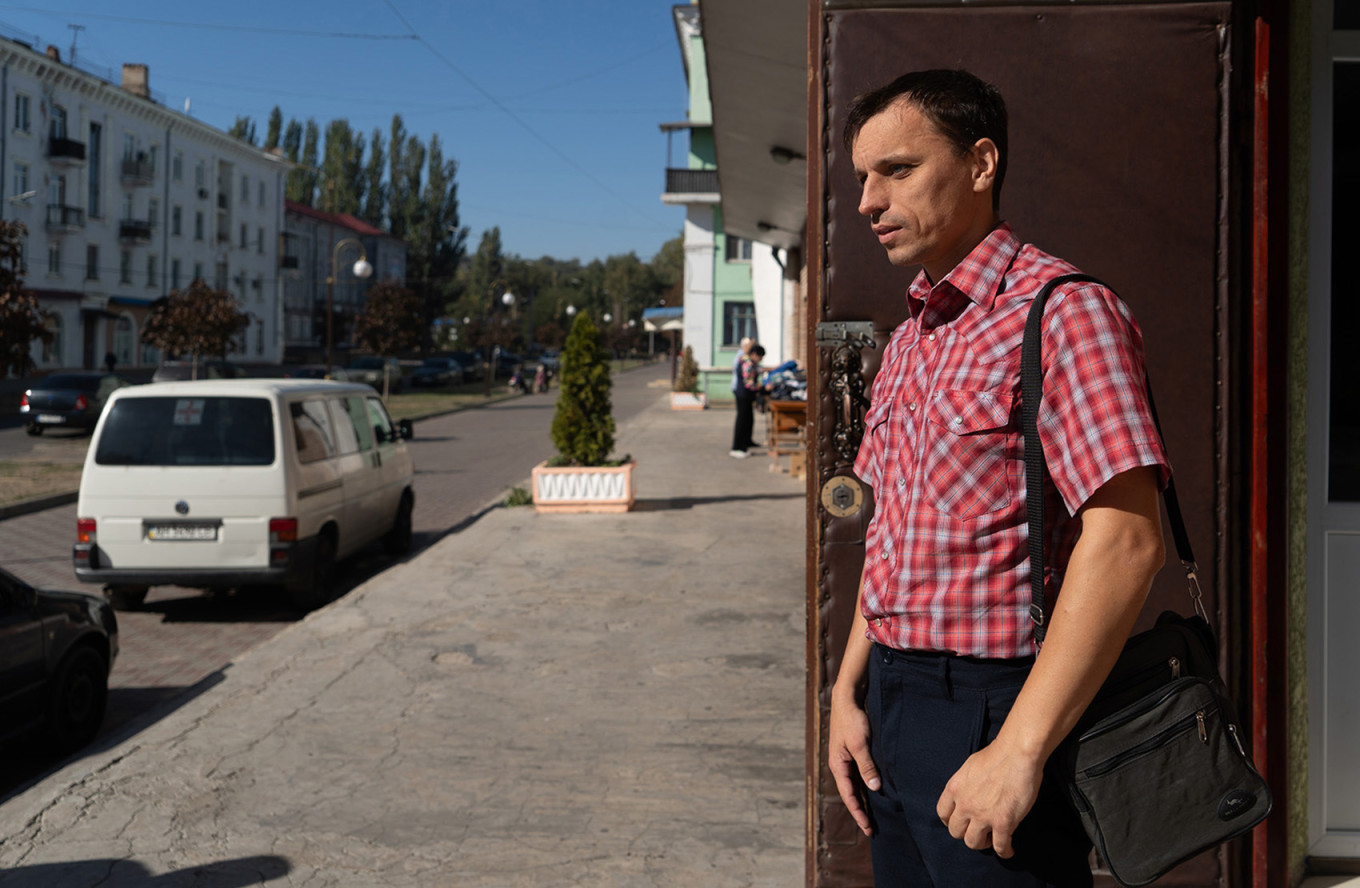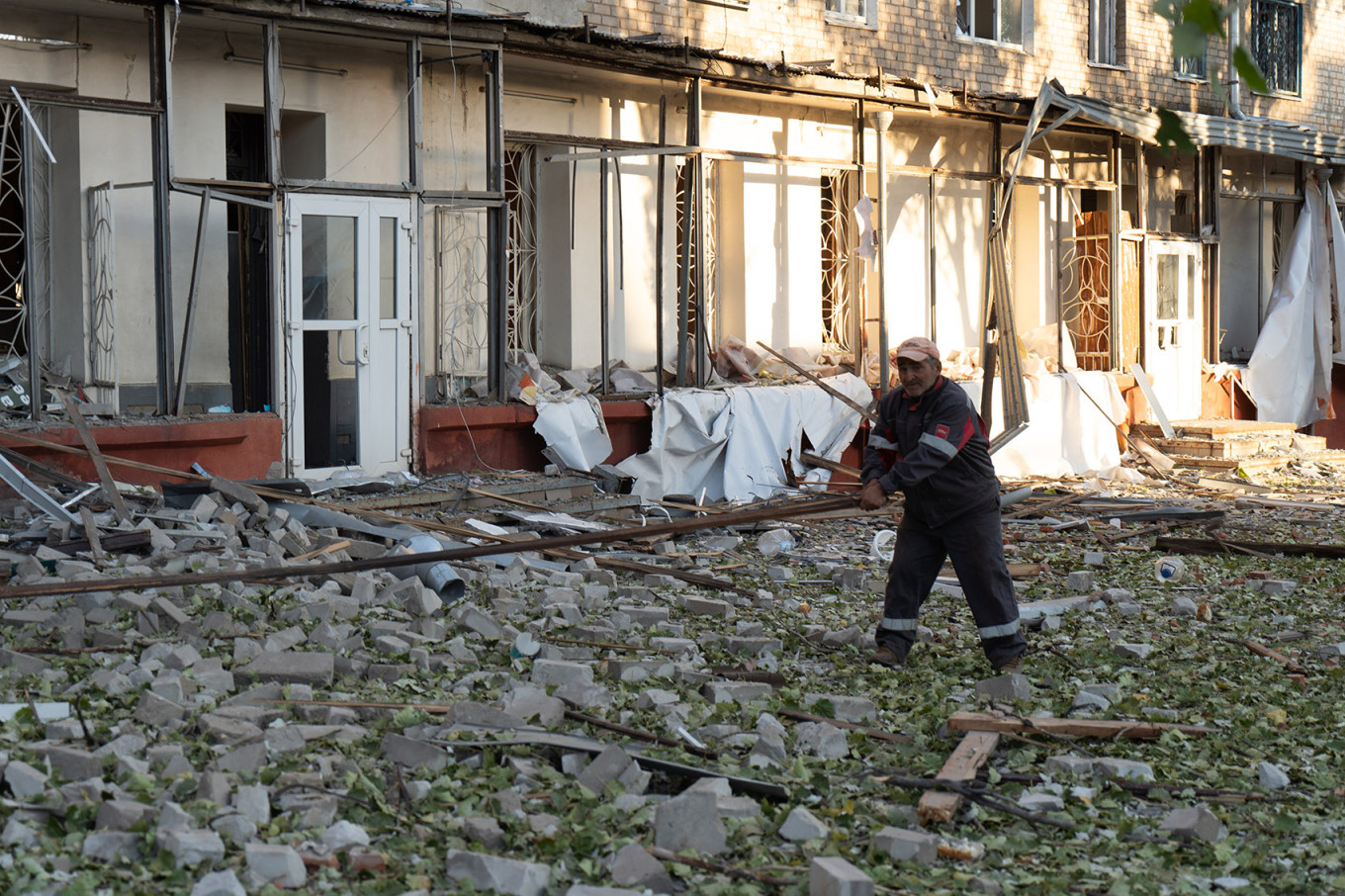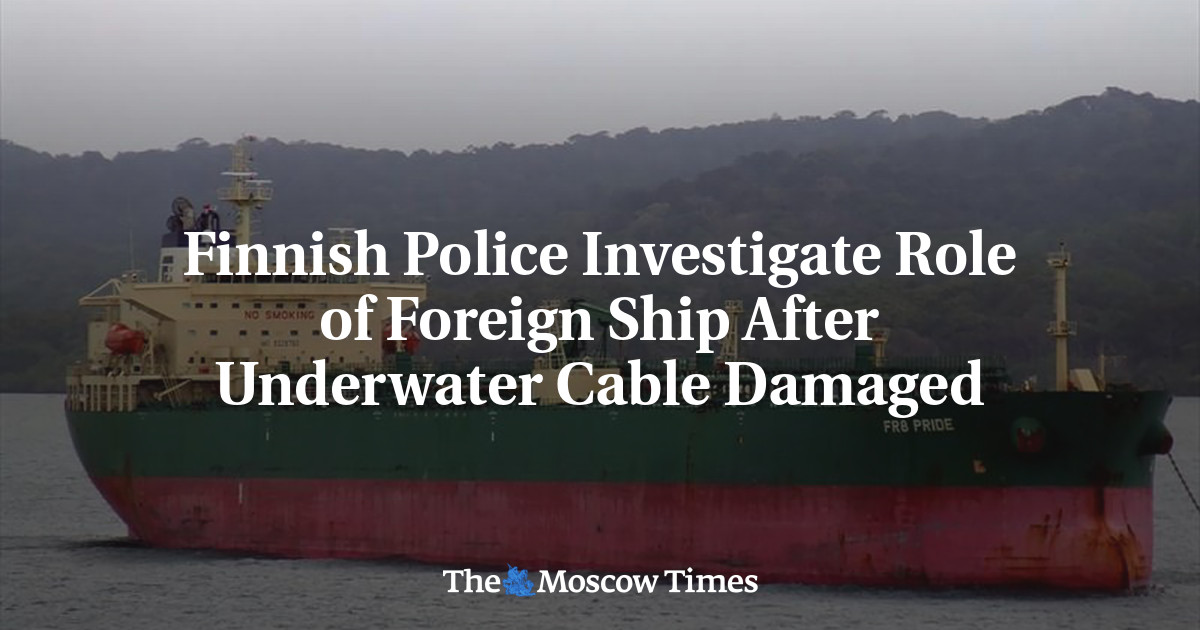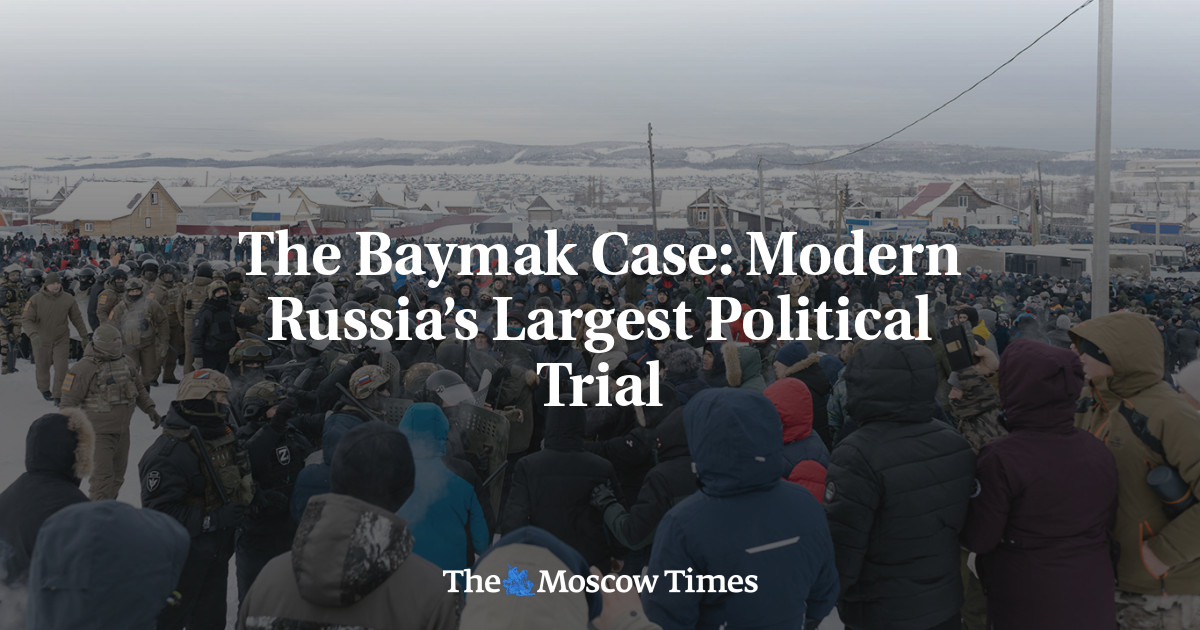Kramatorsk, UKRAINE — Sitting on the steps of his church, now transformed into a refugee center, Evgueny, the congregation’s pastor, enjoys the last rays of sunshine before winter. In the distance, two explosions a few seconds apart make the windows of the small reception center tremble.
"Those are gliding bombs," Evgueny explains without flinching.
With a gaunt face and gentle eyes, Evgueny, in his early 40s, is one of the Protestant pastors of Kramatorsk, one of the last major cities in the Donbas still under Ukrainian control and a key logistical hub for the Ukrainian army that also serves as a safe haven for refugees from the region.
“We had a fairly stable rhythm,” Evgueny explains. “But since the Russians increased their efforts on the front, we’re now receiving between 20 and 30 people per day.”
Since the beginning of summer, Russian forces, in a renewed offensive in the Donbas, have managed to push their front line to within about 10 kilometers of Pokrovsk, another logistical center for the Ukrainian army in the Donbas, while also intensifying their activities toward Chasiv Yar, located 26 kilometers from Kramatorsk.
This momentum especially accelerated after the fall of the critical defensive fortress of Vuhledar in early October.
"We mostly receive refugees from Chasiv Yar, Druzhkivka and Kostiantynivka,” he said. “Those from Pokrovsk usually go to Pavlohrad [a small town between Dnipro and Pokrovsk]."
 Joseph Roche
Joseph Roche
This is the case for Iryna, a woman in her 50s who fled less than a week ago from her parents' farm in the suburbs of Chasiv Yar.
With a frightened look, Iryna brings her thin hands to her face and flinches at every detonation coming from the front line about 20 kilometers away.
Iryna is one of those refugees who, too poor to leave, waited until the last minute to flee.
“I wanted to leave,” Iryna explains. “But my mother was sick, my father passed away, and my brothers are in the army. It was just me left to take care of my mother and our farm.”
Iryna stops her story abruptly. Her eyes fill with fear, and even the autumn light struggles to shine in her pupils darkened by terror.
“One day,” she continues, her voice trembling, “the Russians bombed our farm. They killed all our cows. Some were injured and were mooing in pain. At first, I didn’t have the courage to put them down. But then I did. It was terrible. Eventually, one morning, my mother died, and I left. I arrived yesterday.”
Iryna doesn’t know where to go. Without money and family, she will stay a few more days at the Kramatorsk center before being relocated to a center for internally displaced persons.
As for aid, she can expect to receive between 2,000 and 3,000 hryvnias (around $50) per month from the Ukrainian state, which barely covers basic needs.
Faced with this situation, Evgueny explains that their church tries to help some of the displaced people financially.
“We receive some funds from supporting churches, mostly American ones. We use this money to keep our center running, buy vehicles to pick up refugees, cover fuel and food. When we have a little left over, we try to distribute it. But it’s never enough.”
Mounting pressures
Philippe Jacob, 30, a Luxembourg-born evacuation worker who has been working in Ukraine since September 2023, is also concerned about the developments on the front.
Working primarily in villages around Pokrovsk, he sees the Russians advancing gradually every day.
“I feel like the residents of these towns live in a parallel world, as if disconnected from reality,” Philippe explains. “Some ask us if the Russians are far away when we can hear shells and machine guns all around us and the town is literally being bombarded.”
In the face of denial or stubbornness from some residents, Philippe recounts how his organization is often called by family members who beg them to go and rescue relatives who stayed behind. “It’s mostly the elderly or the sick who remain. They generally have small pensions, barely 4,000 hryvnias, and no real place to seek refuge,” he says.
Despite his determination, Philippe is uncertain how much longer they’ll be able to continue working. Growing increasingly vulnerable to Russian drone attacks, he confides that their missions are becoming more dangerous.
Earlier in October, Philippe lost one of his friends on an evacuation mission.
Tigran Galustyan, an evacuation worker from the organization Rose on the Hand, was killed by a Russian FPV drone as he tried to drive Ukrainian civilians out of the town of Kurakhove.
“The Russians shared the video,” Philippe explains. “You can clearly see it’s not a military vehicle but a civilian one. Now we only go to that part of the front with an armored vehicle.”
But even the drone jammers used, according to Philippe, are becoming less effective against Russian attacks. “Tigran was driving with both jammers on, but the Russians now use low frequencies to bypass our jamming systems,” Philippe sighs.
Leaving to never return
On the doorstep of the Kramatorsk center, Oxana, in her early 50s, carries two large gingham-patterned plastic bags. Behind her, her five children carry what little remains of their former life as best they can.
Yuliia, 16, the oldest, carries their dog and the youngest child.
Originally from Kostiantynivka, a small town between Kramatorsk and Chasiv Yar, about 10 kilometers from the front, they arrived yesterday.
“In one year, the Russians doubled their attacks on the city,” Oxana says. “We used to get bombed a few times a month. Now it’s almost all the time.”
 Joseph Roche
Joseph Roche
But Oxana’s decision to finally flee came last year, when she narrowly escaped a bombing at Kostiantynivka’s market in September 2023.
“I had just finished shopping and left when the Russians shelled the market,” she said.
The attack killed 15 people and injured 32. Its origins remain unclear and, according to a New York Times investigation, could have been a mistake by Ukrainian artillery. But since then, the Russians have relentlessly bombarded the small town almost daily.
A year later, after taking the time to organize and prepare their departure, Oxana finally took the plunge and decided to flee to the Ukrainian capital.
“I don’t know how long we’ll stay in Kyiv, but we’re not planning on going back to Kostiantynivka. The front is too close, the city is destroyed, and my children need activities. They can’t grow up like this, right next to the front.”
Yuliia is excited to leave and explains that many of her friends are already refugees in Kyiv. “My best friend is waiting for me there,” she says, smiling. “And I want to go back to a real school. Between Covid and the war, I can barely remember the last time I attended an in-person class. After high school, I hope to go to university in Kyiv to study art.”
But without a job and recently divorced, Oxana is unsure of what to expect. “All I can tell you is that the future is uncertain, but I hold onto God and pray. What else can we do in our situation?”
A Message from The Moscow Times:
Dear readers,
We are facing unprecedented challenges. Russia's Prosecutor General's Office has designated The Moscow Times as an "undesirable" organization, criminalizing our work and putting our staff at risk of prosecution. This follows our earlier unjust labeling as a "foreign agent."
These actions are direct attempts to silence independent journalism in Russia. The authorities claim our work "discredits the decisions of the Russian leadership." We see things differently: we strive to provide accurate, unbiased reporting on Russia.
We, the journalists of The Moscow Times, refuse to be silenced. But to continue our work, we need your help.
Your support, no matter how small, makes a world of difference. If you can, please support us monthly starting from just $2. It's quick to set up, and every contribution makes a significant impact.
By supporting The Moscow Times, you're defending open, independent journalism in the face of repression. Thank you for standing with us.
Continue
![]()
Not ready to support today?
Remind me later.
 (1).png)
 1 month ago
7
1 month ago
7













